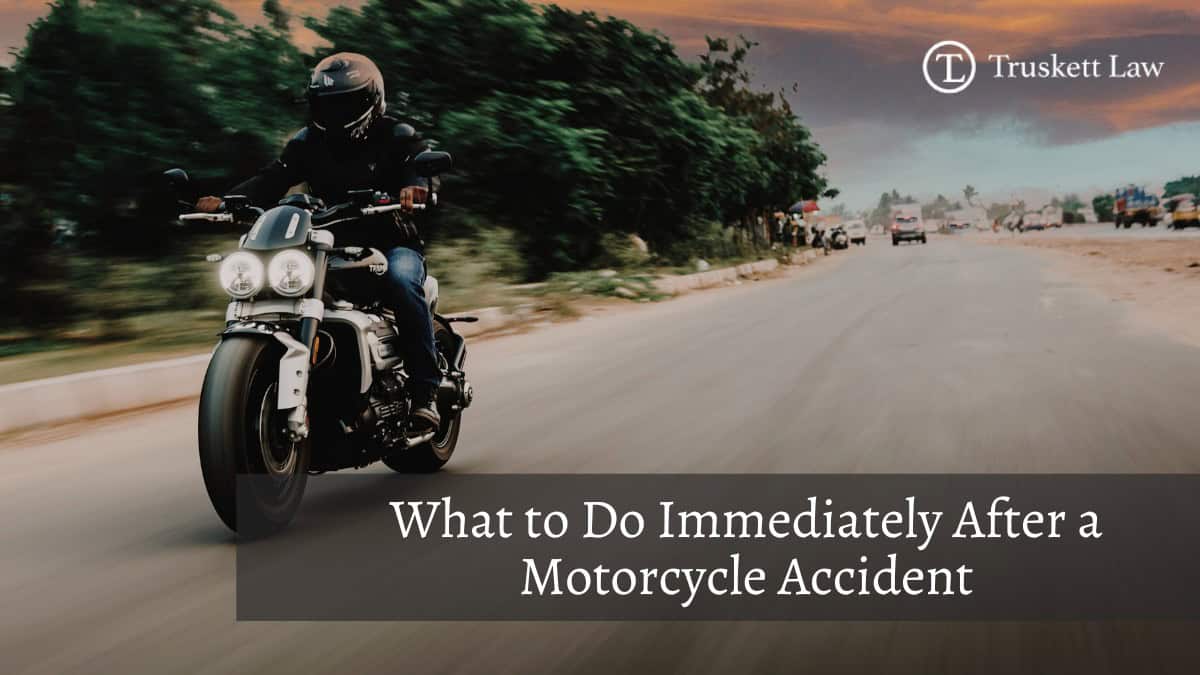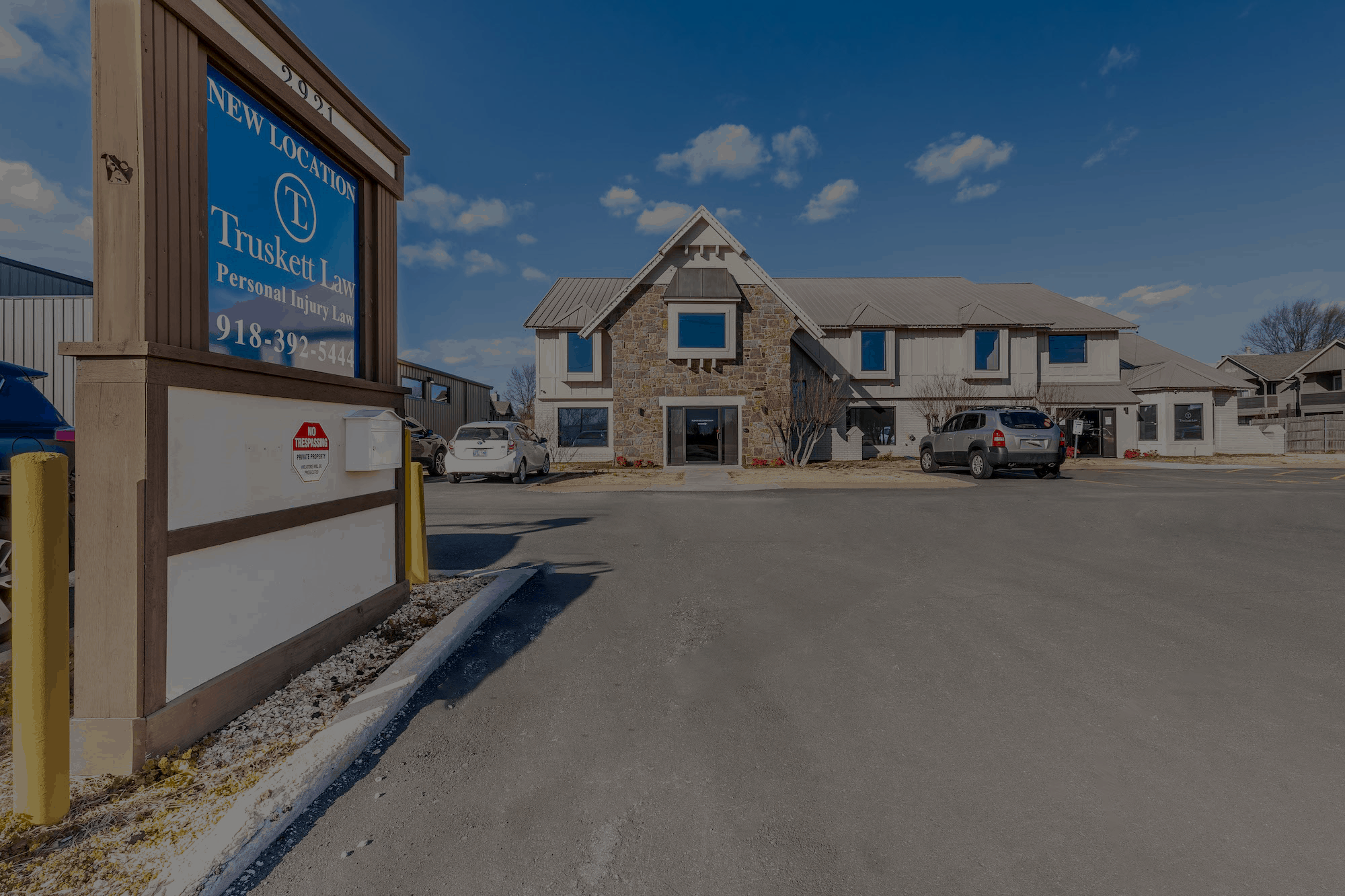
20 Mar What to Do Immediately After a Motorcycle Accident: A Legal Guide
A Legal Guide to Motorcycle Accidents
Motorcycle accidents can be traumatic and overwhelming. In the immediate aftermath, it’s crucial to take specific steps to protect your health, your legal rights, and your ability to recover compensation. Whether you are a seasoned rider or a beginner, knowing what to do after a crash can make a significant difference in the outcome of your case.
This month’s blog post provides a step-by-step approach to handling a motorcycle accident, ensuring you are well-prepared should the unexpected happen.

1. Prioritize Safety and Check for Injuries
Immediately after a motorcycle accident, the first priority is safety. If you are conscious and able to move, check yourself for injuries. Even if you feel fine, adrenaline can mask pain, and some injuries may not be immediately apparent.
If you can, move to a safe location away from traffic to avoid further harm. However, if you suspect serious injuries, remain still and wait for emergency responders.
If other individuals are involved, check on their well-being and call 911 for medical assistance. Emergency medical personnel can assess injuries and provide the necessary care. Seeking medical attention is crucial not only for your health but also for documenting injuries, which will play a significant role in any legal claims.
2. Contact Law Enforcement
Calling the police is essential, even if the accident appears minor. A police report provides an official record of the incident, which can be invaluable for insurance claims and legal proceedings. When officers arrive, provide them with accurate details of what happened, but avoid admitting fault. Stick to the facts and let the authorities determine liability based on their investigation.
Ask how you can obtain a copy of the police report, as this document will be important when dealing with insurance companies and legal matters.
3. Gather Evidence at the Scene
Evidence plays a critical role in motorcycle accident claims. If you are physically able, take photos and videos of the accident scene, including:
- Your motorcycle and any other vehicles involved
- Visible injuries
- Road conditions, skid marks, traffic signals, and any hazards
- License plates and vehicle damages
4. Exchange Information with Other Parties
Exchange insurance and contact details with the other driver(s) involved in the accident. Obtain their:
- Name and contact information
- Insurance company and policy number
- Driver’s license number
- Vehicle make, model, and license plate number
Be polite and professional, but avoid discussing fault or making statements that could be used against you later.
5. Seek Medical Attention Promptly
6. Notify Your Insurance Company
Report the accident to your insurance company as soon as possible. Provide them with accurate details and cooperate with their investigation. However, be cautious about giving recorded statements without consulting a lawyer, as insurance adjusters may use your words against you to minimize payouts.
If the at-fault party’s insurance company contacts you, avoid discussing settlement offers or signing any documents before speaking with an attorney.
7. Document Everything
Keeping a thorough record of all accident-related expenses and impacts can strengthen your claim. Maintain records of:
- Medical bills and treatment plans
- Repair estimates for your motorcycle
- Lost wages if you had to miss work
- Pain and suffering experienced due to the accident
A well-documented case can increase the chances of receiving fair compensation.
8. Avoid Social Media

9. Consult a Motorcycle Accident Lawyer
Hiring an experienced motorcycle accident attorney can make a significant difference in your case. A lawyer can help you:
- Understand your legal rights and options
- Gather and preserve crucial evidence
- Negotiate with insurance companies for a fair settlement
- Represent you in court if necessary
10. Understand Your Compensation Rights
Depending on the circumstances of your accident, you may be entitled to various forms of compensation, including:
- Medical expenses, including future treatments
- Lost wages and reduced earning capacity
- Pain and suffering
- Motorcycle repairs or replacement
- Emotional distress and loss of enjoyment of life
Understanding these rights can help ensure that you receive the full compensation you deserve.
When Are Motorcycle Accidents Most Common?
Protecting Yourself After a Motorcycle Accident
A motorcycle accident can be a life-altering event, but knowing what steps to take can protect your health, legal rights, and financial well-being. By prioritizing safety, gathering evidence, seeking medical attention, and working with a knowledgeable attorney, you can navigate the claims process with confidence.
At Truskett Law, we are dedicated to helping motorcycle accident victims get the justice and compensation they deserve. Our experienced legal team understands the unique challenges motorcyclists face and will fight for your rights every step of the way.
If you’ve been in a motorcycle accident, don’t navigate this journey alone – contact us today and let us help you secure the best possible outcome for your case.


Sorry, the comment form is closed at this time.